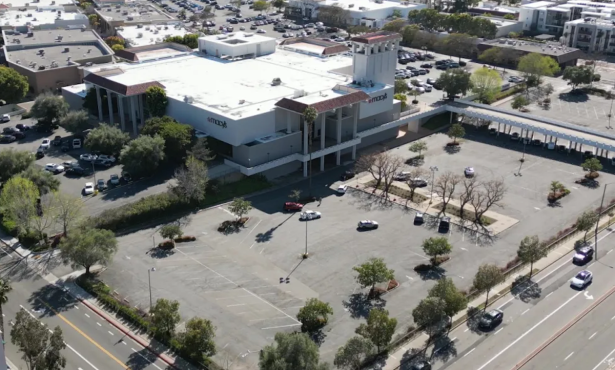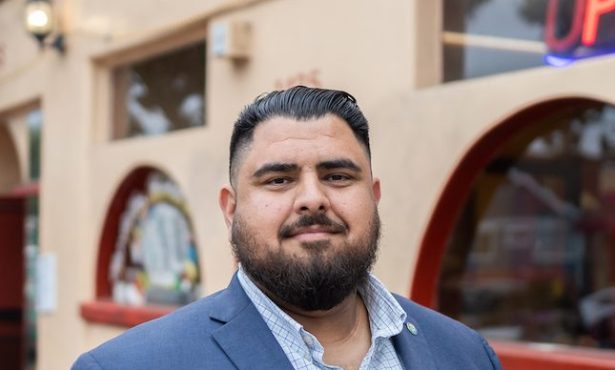When Bad Dogs Do Good Things
Talking with Iran After 35 Years of Silence
WEIRD-ASS SYMMETRY: Talk may be cheap, but silence is really expensive. I’m referring to the utter void in any communication at any level between the United States — a k a “the Great Satan” — and Iran — a k a “the Axis of Evil” — since November 4, 1979. That’s the starting date of the Iranian Hostage Crisis, in which Iranian students stormed the U.S. Embassy in Tehran and held 52 Americans captive for 444 days. Since then, we’ve gone through six presidents and 34 Super Bowls. That’s a very long time to stew and simmer. Two weeks ago, that silence was broken. President Barack Obama busted his now famous “reach out and touch somebody” move on Iran’s new President Hassan Rouhani — light-years more moderate than his infamous predecessor — then in New York as part of a whirlwind United Nations charm offensive. Given how many itchy trigger fingers occupy Rouhani’s part of the world, this simple, though admittedly limited, act of sanity should have garnered far more attention than it received.

I mention all this because Iranian writer and journalist Hooman Majd will be speaking at Santa Barbara City College this Thursday afternoon (2:30 in Room A211 in the East Campus Administration Building) laying out a cautious, guarded case for real optimism. Rouhani ran for office as a moderate and reformer; his overtures to the United Nations and willingness to deal with the United States over Iran’s nuclear power program, Majd said, “suggests he means it.” Mostly Majd, speaking at the invitation of SBCC Professor Manou Eskandari-Qajar, said he hopes to dispel some powerful “preconceptions” people have about Iran.
First, he said, it’s not anything like the absolute dictatorship of North Korea. Though autocratic and repressive, Iran has elections. And within the Iranian media — admittedly very constricted — he noted there’s genuine debate on some issues, like how Iran should respond to what’s happening in Syria. Not all Iranians wake up in the morning raring to attack the United States, Majd stressed, though they live with a keen appreciation that the United States could — and might — do just that to them. While Majd did not dismiss Iran’s previous president, Mahmoud Ahmadinejad, as an outright “whack job,” he acknowledged that Ahmadinejad — a screaming anti-Semite and Holocaust denier — reinforced and confirmed all the worst fears anyone could have about Iran. He noted that the candidate closest to Ahmadinejad in the most recent presidential elections came in a distant third. Majd said it was unrealistic to expect Iran to surrender outright on the issue of nuclear power. “It’s a matter of national pride,” he said. “If France gets 60 percent of its energy from nuclear energy, then why can’t Iran?” Sanctions have crippled the country’s economy, and the more oil Iran can sell on the international market, he said, the better. Majd, who grew up outside of Iran but remains very connected (he’s related by marriage to former president Khatani), suggested Iran would accept far more stringent and frequent inspections of its nuclear facilities and would reduce the number of centrifuges involved. “There is a deal to be made,” he stressed.
I know all this sounds hopelessly Kumbaya. But the opportunities presented by the brief phone call between Rouhani and Obama — legitimately historic — should not be squandered. In a striking coincidence, the day before Majd spoke at SBCC, Westmont College sponsored a talk at the Coral Casino by former secretary of state Henry Kissinger, who helped precipitate the Iranian Hostage Crisis in the first place. I pretend no fairness where Kissinger is concerned; he’s one of the great villains of all time. No doubt Henry’s the screaming genius everyone says he is when it comes to international affairs. But the trajectory of Kissinger’s career demonstrates mostly that you can get away with murder so long as you’re on the winning side. It’s become trite, I recognize, to call Kissinger a war criminal. But let’s just say if all the blood on his hands was water, we’d never have to worry about drought again. Kissinger — then serving under Richard Nixon — designated the shah of Iran (who’d been reinstated to the Peacock Throne in 1953 thanks to a military coup, Operation Ajax, orchestrated by the CIA) as the U.S. military proxy in the Middle East. Under Nixon and Kissinger, the U.S. sold the shah as much weaponry as Iran’s vast oil wealth could pay for, and they turned a blind eye to the shah’s increasing reliance on torture and repression as part of his march toward “modernization.” If the shah wanted to spend $100 million on a birthday bash celebrating 2,500 years of monarchy, what was a little excess among friends? In January 1979, the shah was forced into exile by a revolution that included not just the religious extremists but also many secular, educated, and “modernized” Iranians. By the fall, the shah — sick with cancer — wanted sanctuary in the United States. President Jimmy Carter wisely resisted. If the Great Satan accepted the shah, then wanted in his own country for prosecution, Carter knew the shit would hit the fan and there’d be no getting the toothpaste back in the tube. The shah could just as easily play tennis with rich people in Mexico, Carter argued, as he could with the one-percenters in Malibu. Kissinger thought otherwise. How would other dictators be willing to do the United States’ bidding if we turned our back on the shah in his hour of need? It was a matter of national honor. Kissinger and his patron David Rockefeller leaned hard on Carter to admit the shah. At the time, Carter had a major nuclear weapons treaty — SALT II — he was desperate to pass. It was far from certain whether he had the votes. If Kissinger opposed it, Carter’s treaty would be sunk. Carter did the math and admitted the shah on October 22. Thirteen days later, the world blew up. The rest, as they say, is history. The intervening silence has been anything but golden. Good thing talk is cheap. We’ve got so little to lose.



